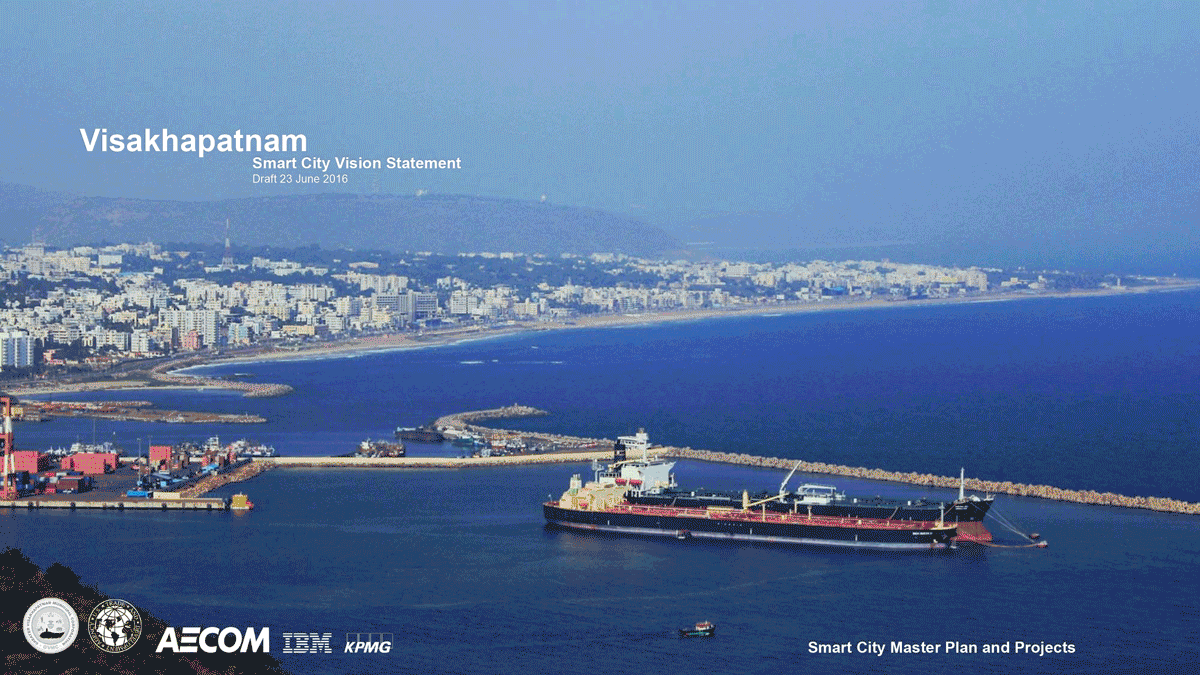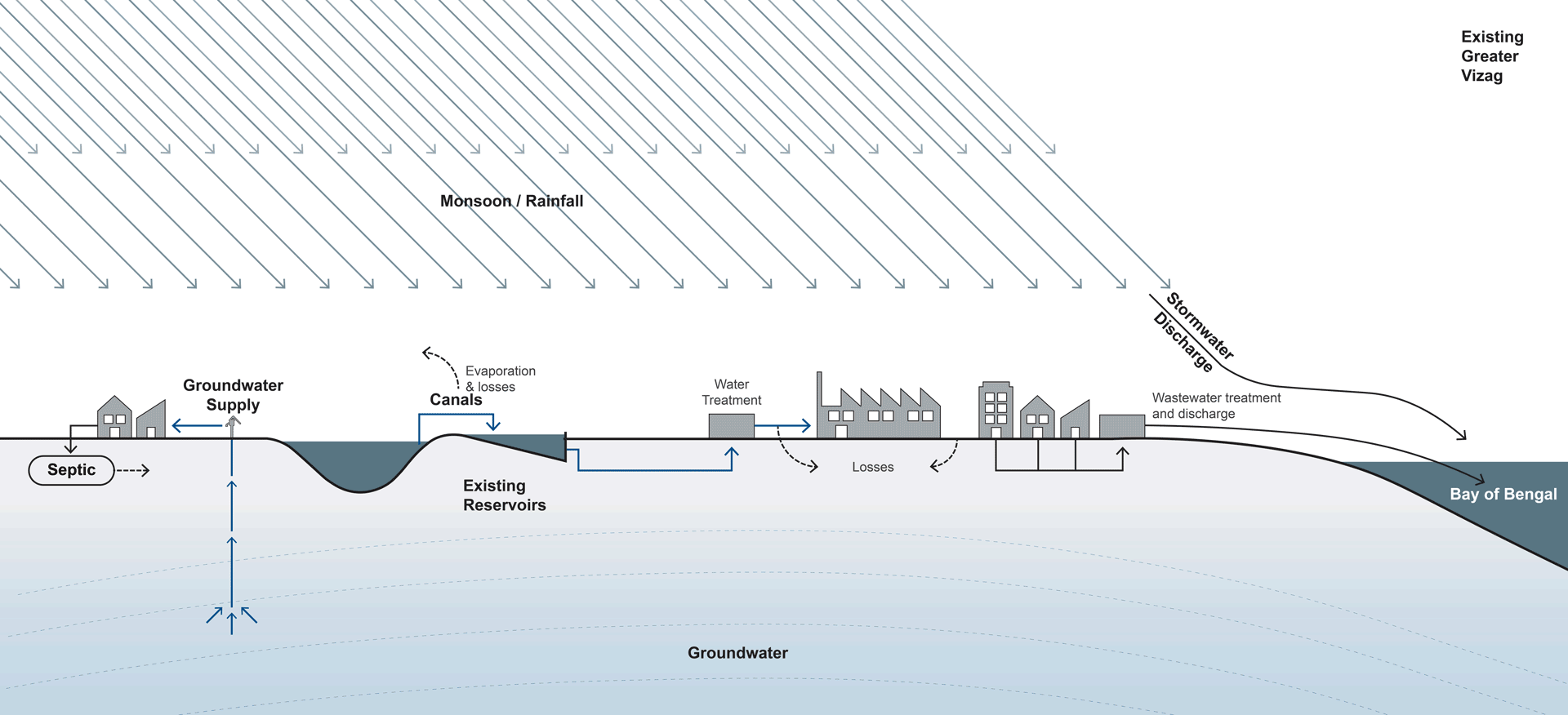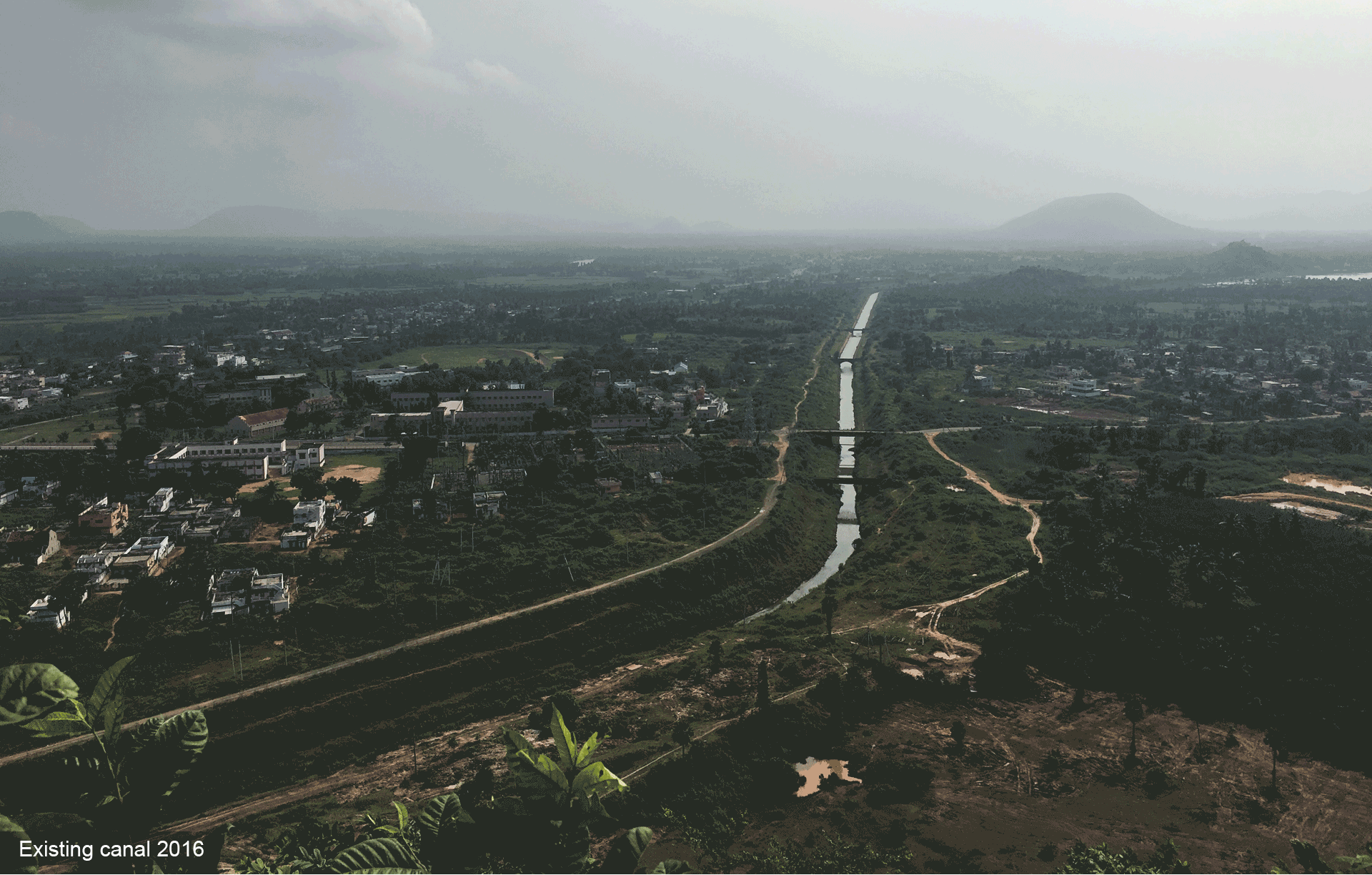Visakhapatnam Integrated Smart City Framework Plan
The AECOM team, including partners IBM and KPMG, carried out the assignment “Smart City Master Planning & Sector Specific Smart City Infrastructure Plans for Visakhapatnam” on behalf of the Government of Andhra Pradesh with financing from the U.S. Trade and Development Agency (USTDA). With a view to promoting the development of Visakhapatnam into a smarter city, the assignment included baseline analysis, formulation of a development strategy and guidelines, preparation of a regional integrated framework plan, feasibility analysis of smart city projects, capital investment plan, and guidance for assimilation with statutory land use planning, as follows:
Phase I – Baseline, Smart City Development Strategy and Action Planning for Two Smart City Projects;
Phase II – Preparation of the Smart City Master Plan;
Phase III – Implementation Plan and Feasibility Studies for Four Smart City Projects.
LOCATION
Visakhapatnam, Andhra Pradesh, India
CLIENTS
Government of Andhra Pradesh
U.S. Trade & Development Agency
ROLE
Project management and technical advisement as part of AECOM team
Integrated Urban Development Framework
The Integrated Smart City Framework Plan included tasks building to an Integrated Framework Plan, and urban development, open space, ICT, mobility, water and sewerage, energy, social infrastructure, housing, and resilience components. The Integrated Framework Plan included a vision for leveraging existing assets and technological change, guiding principles and approaches, and planning components.
The Urban Development Framework address challenges to growth, evaluates potential settlement typologies, and summarizes four area vision plans in Central Visakhapatnam, Rushikonda, Parawada, and for a Coastal Development Strategy.
Additional socio-economic, spatial, and environmental challenges inform the proposed urban development framework. Insights from our representative household survey have guided the tone for interventions as part of the Smart City Master Plan and Sector-Specific Projects. Survey findings verify many of citizens’ concerns with quality and quantity of access to water, sewerage, energy, transit options, and a safe public realm.
Green Framework
The Green Framework includes layered strategies which combine to protect and improve environmental quality and public health as well as make visible Vizag’s unique features of livability. The individual layers in a connected system preserve Visakhapatnam’s unique environmental features, provide valuable ecosystem services and support urban resilience.
Information Communications Technology and Integrated Urban Management
The Information Communications Technology (ICT) and Integrated Urban Management (IUM) Overview Strategy provides a conceptual functional architecture, and addresses ICT and IUM infrastructure, analytic methods, instrumentation and control, connectivity, interoperability, security and privacy, data management, and citizen engagement.
Water
The Water Supply, Sewerage, and Stormwater component includes strategy and projects for large-scale service expansion, making visible water flows to managers and users, increasing surface water storage, and planning water and sewerage delivery in satellite towns.
Mobility
The Mobility component outlines a regional growth strategy with a series of bus transit, electrification of transportation, and mobility systems management projects.
Energy
The Energy component provides strategy for diversifying and decentralizing energy supply, and projects for a smart micro grid program in the region, and photovoltaic deployment as part of reservoir and canal evaporation systems (inaugurated August 2018).
Social Infrastructure
The Social Infrastructure component includes participatory feedback and guidance on social welfare, health systems, livelihood development through skills training, and planning for tourism. The Smart Skill Vizag Program provides tailored functional and technical skills training pathways for all socio-economic communities by connecting users with local training providers with an emphasis on key market sectors and smart systems. The Smart Skill Vizag program aligns with the National Skills Qualification Framework (NSQF) and with the Skill India program.
Housing
The Housing Component addresses population growth in the Visakhapatnam Metropolitan Region to 6.1 million people by 2021 by providing strategy for infill housing, densification and expansion of existing settlement areas to conserve agricultural, forest, and drainage-sensitive areas.
Climate Change Resilience
The Resilience Framework anticipates threats to settlement, public health, and the economy, and mitigate and/or respond to these challenges.
Participation Strategy
In addition to a project site, a series of comics and other visual collateral which citizens were developed with Quicksand as part of the engagement campaign through SMS. These visual narratives (land use, water, energy, mobility, social infrastructure) were relatable to real lives, echoing the voices, concerns and aspirations of Vizag’s people. Set in 2025, the comics envisioned a future and solicited SMS-based feedback on the technical projects and policies from the Integrated Smart City Framework Plan. Versions were prepared for distribution in both English and Telegu (700,000 total copies distributed) to reach citizens across classes and literacy, and connected with the project website.









